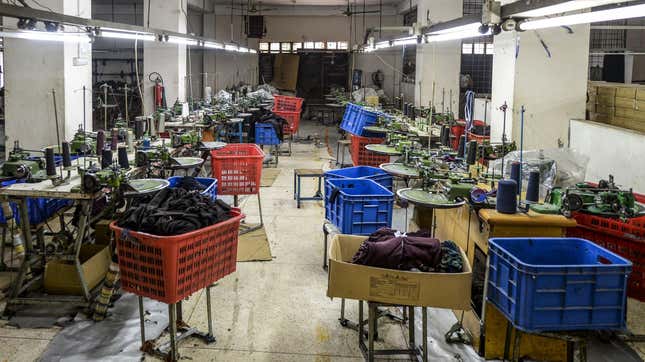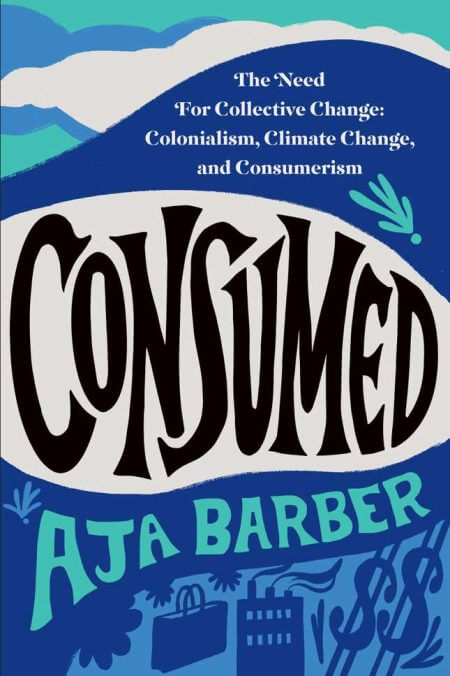The High Costs of Dirt-Cheap Fast Fashion
It is humans who cut the fabric, and humans who work tirelessly at sewing machines. And humans can only work so fast.
BooksEntertainment
Image: (Photo by MUNIR UZ ZAMAN/AFP via Getty Images)
The following is an excerpt from Consumed: The Need for Collective Change: Colonialism, Climate Change, and Consumerism.
In order to keep up with the fast consumption cycle they have built, brands have to create a lot and they have to create it very quickly. When we buy things in large amounts or in bulk, the price automatically goes down. That’s how our economy has always worked. The more you buy, the cheaper the overall price becomes, because the only way things become less valuable is if you buy more of them.
When a store is placing an order with a factory, the bigger the order, the lower the individual price of the pieces overall because… scale is leverage. You don’t just see it in factories, you see it on websites like eBay, where an item is listed but if you buy two it gets cheaper, and if you buy three, wait for it, yup, it drops in price even further. And this reductive pricing filters down and down until it eventually reaches the bottom of the fashion and garment industry. Buyers from brands haggling with factories to get the lowest price possible for the goods being produced, which means the factory owner gets this chunk of money upon delivery to pay everyone out of, which sounds great, but it isn’t a sustainable chain. Here’s why:
As the order grows and grows, the supplier knows it will be harder and harder to fulfill. The brand also knows it will be hard to deliver, due to the scale of production and their impossibly quick turnaround time … Both parties know there is a limit to the amount any factory system can produce, because all clothing is made by human hands (though fashion is moving closer to automation every day, which I think will be another disaster).
So, whether the order is being made in a factory or on a sewing machine in someone’s home, human hands are doing the work. It is humans who cut the fabric, and humans who work tirelessly at sewing machines. And humans can only work so fast.
-

-

-

-

-

-

-

-

-

-

-

-

-

-

-

-

-

-

-

-

-

-

-

-

-

-

-

-

-

-

-

-

-

-

-

-

-

-

-

-









































